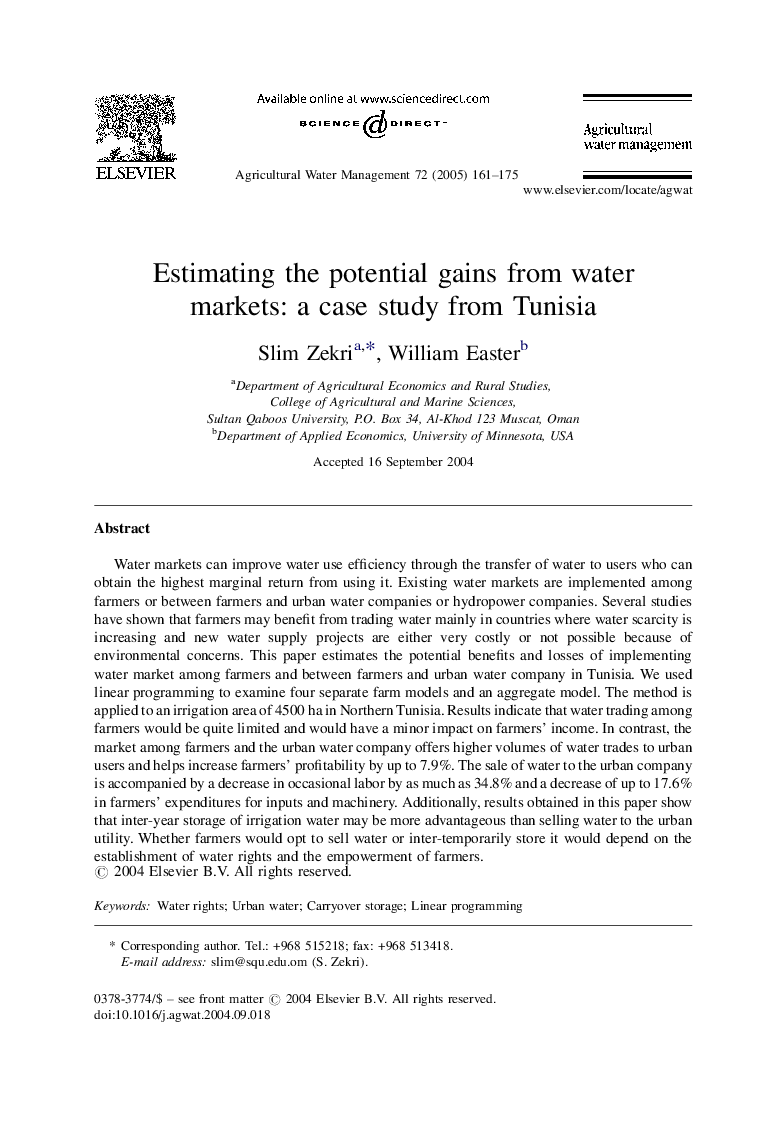| Article ID | Journal | Published Year | Pages | File Type |
|---|---|---|---|---|
| 9467428 | Agricultural Water Management | 2005 | 15 Pages |
Abstract
Water markets can improve water use efficiency through the transfer of water to users who can obtain the highest marginal return from using it. Existing water markets are implemented among farmers or between farmers and urban water companies or hydropower companies. Several studies have shown that farmers may benefit from trading water mainly in countries where water scarcity is increasing and new water supply projects are either very costly or not possible because of environmental concerns. This paper estimates the potential benefits and losses of implementing water market among farmers and between farmers and urban water company in Tunisia. We used linear programming to examine four separate farm models and an aggregate model. The method is applied to an irrigation area of 4500Â ha in Northern Tunisia. Results indicate that water trading among farmers would be quite limited and would have a minor impact on farmers' income. In contrast, the market among farmers and the urban water company offers higher volumes of water trades to urban users and helps increase farmers' profitability by up to 7.9%. The sale of water to the urban company is accompanied by a decrease in occasional labor by as much as 34.8% and a decrease of up to 17.6% in farmers' expenditures for inputs and machinery. Additionally, results obtained in this paper show that inter-year storage of irrigation water may be more advantageous than selling water to the urban utility. Whether farmers would opt to sell water or inter-temporarily store it would depend on the establishment of water rights and the empowerment of farmers.
Related Topics
Life Sciences
Agricultural and Biological Sciences
Agronomy and Crop Science
Authors
Slim Zekri, William Easter,
